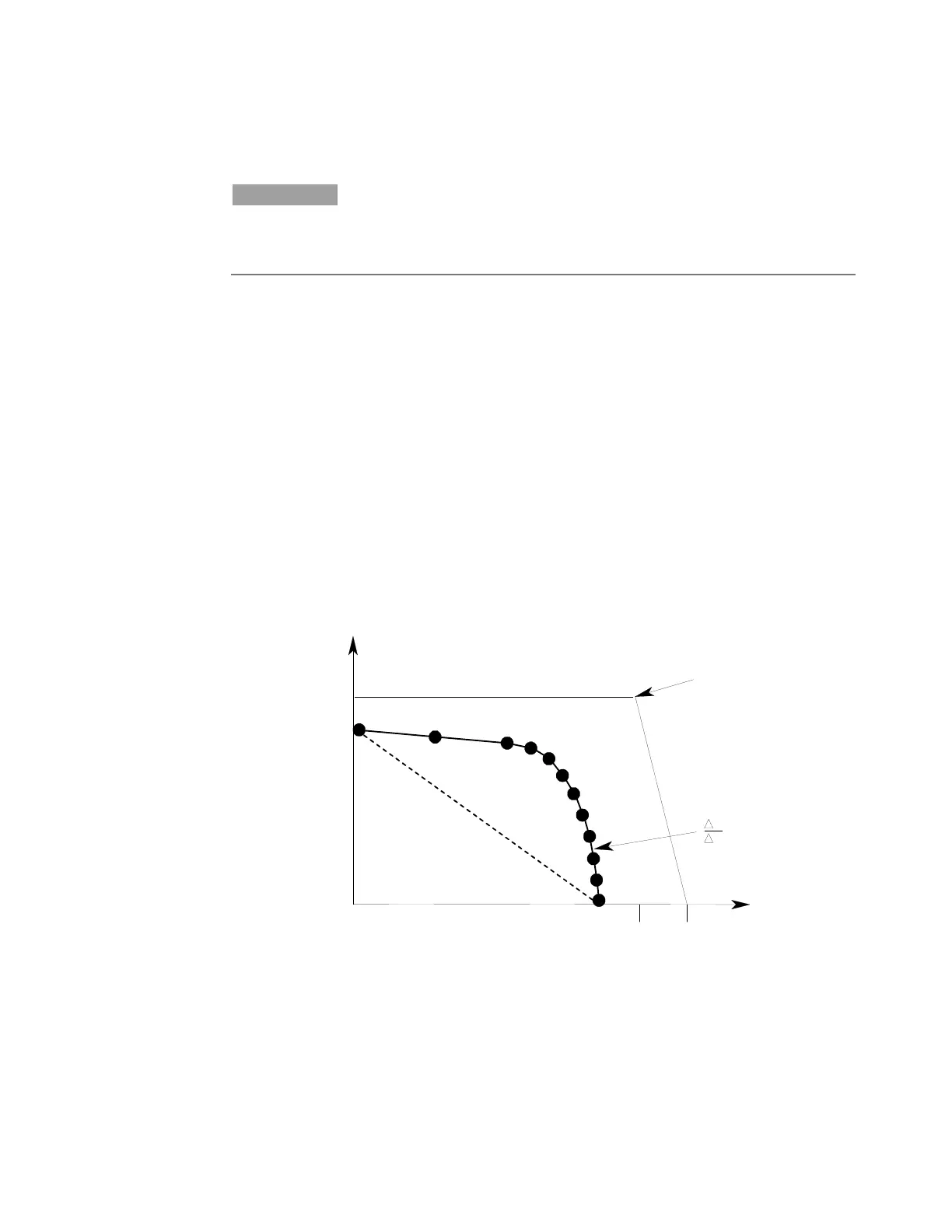4 Using the Solar Array Simulator
72 Series E4360 User’s Guide
Operating in Table Mode
NOTE
Output synchronization is NOT provided in Table mode; this means that
the output will activate a table as soon as the command is received. You
cannot synchronize table changes between outputs or mainframes.
is also no list support for table changes.
In Table mode, the output characteristic is determined by a user-defined
table of I-V points as illustrated in the following figure. Table mode
operation is achieved by sampling the output voltage, applying a low-
pass filter, and continually adjusting the constant current loop by using
the filtered voltage as an index into the stored table of points.
Linear interpolation is used to set the current when the filtered voltage
does not have an exactly matching table entry. What this means is that
the I-V curve is generated by connecting the points in the table by
straight lines. The more points that you provide, the more accurate the
curve will be when the points are connected.
Each point is defined by an I-V coordinate-pair that define the location
of the point on the curve. The first value is the voltage; the second value
is the current. If no V=0 value is provided, the current associated with
the lowest voltage value is defined as Isc and the curve will be extended
horizontally to the current axis. If no I=0 value is provided, the slope that
was determined by the last two current values will be extended to the
voltage axis.
Tables are initially created using the MEM:TABL:SEL command. Up to 30
tables can be created and stored in volatile memory per mainframe. To
save the tables when the instrument is turned off, copy them to non-
volatile memory using MEM:TABL:COPY. Up to 30 tables can be stored
in non-volatile memory per mainframe.
I
V
sc
oc
I
V
0
V
I
MAXIMUM
VOLTAGE
TYPICAL CURVE
MAXIMUM CURRENT
POINTS UNDER
DASHED LINE
ARE INVALID
E4361A = 8.5A
E4362A = 5A
510W = E4361A
600W = E4362A
= 1 Ω min (E4362A)
= .25 Ω min (E4361A)
60V 65V = E4361A
120V 130V = E4362A
